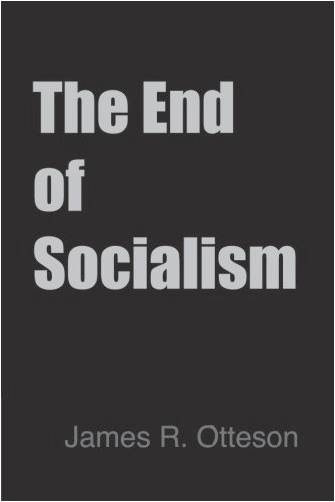|
|
|
Author James Otteson is a professor at Wake Forest University, a Senior Scholar at the Fund for American Studies in Washington, D.C., and a Research Professor in the Freedom Center and Department of Philosophy at the University of Arizona. His newest book is geared toward scholars and lay readers alike.
Otteson delves into theory espoused by socialist scholars and thinkers from various time periods.
The End of Socialism presents the socialist philosophy in a respectful and intellectual manner before showing that it fails every time it is tried.
Otteson delves into both the practical and moral thought behind the systems of capitalism and socialism. Relying on Adam Smith and other proponents of capitalist theory, the author gives a Book Monitor clear picture of why capitalism wins in the end.
Socialism requires "centrally organized political-economic decision making." In order for socialism to work, there would need to be an all-knowing human to make decisions for society. Not only must the needs and wants of individuals be perfectly known at any one time, but changes in those needs must be predicted.
By contrast, capitalism "values the initiative, innovation, and sense of accomplishment embodied in individual -- and therefore competitive -- striving." Capitalism is fast on its feet and can change direction quickly as new needs become apparent.
In The End of Socialism, Otteson explores the moral and economic outcomes of public property and regulated exchange as opposed to free exchange and private property rights. Capitalism is demonstrably the better system in every case.
A basic question remains: could socialism ever work? The answer to that is if human nature was different and if situations were different, it is possible. But everywhere it is tried, it fails. Programs with socialist leanings that are tried in capitalist economies have unintended consequences and poor outcomes. More reliance on free market capitalism means a better life for more citizens.
(Cambridge University Press, 2014, 224 pp., $28.99) |
 His analysis of the benefits and drawbacks of centralized planning and socialism, as opposed to the free market functions of capitalism gives both theories credit for their unique characteristics.
His analysis of the benefits and drawbacks of centralized planning and socialism, as opposed to the free market functions of capitalism gives both theories credit for their unique characteristics.
